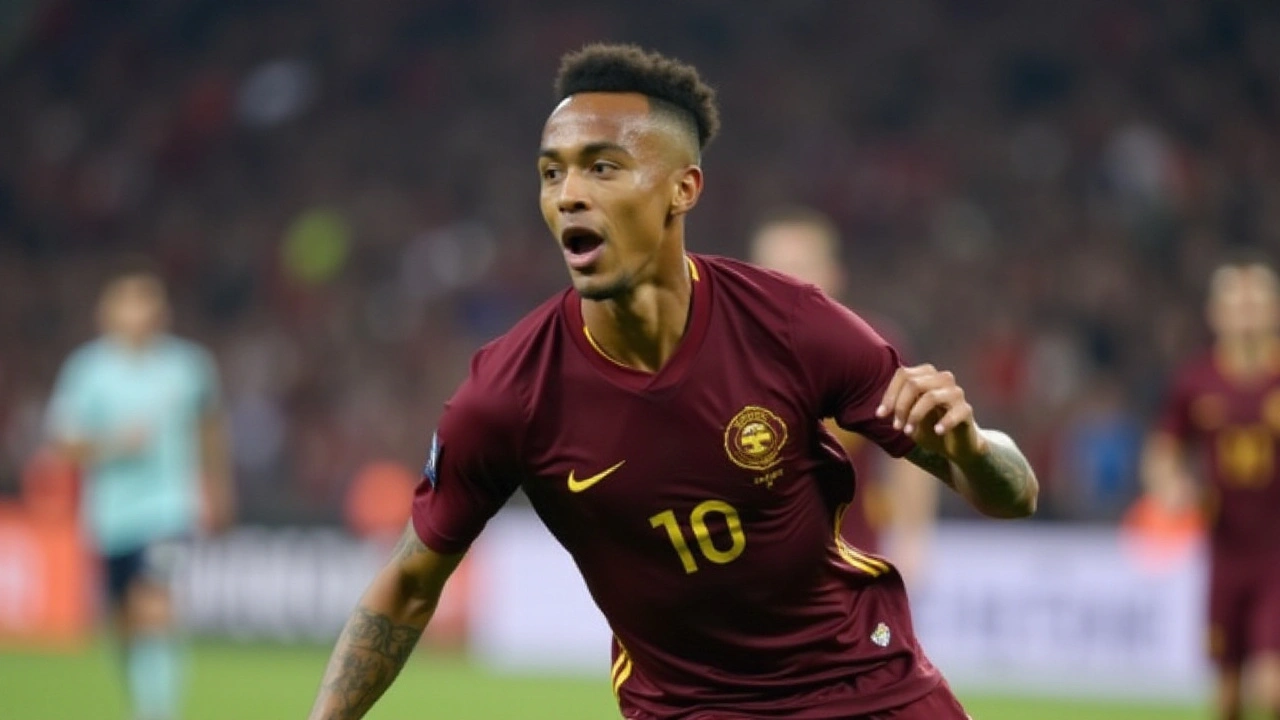Liverpool Football Club is at a pivotal juncture as it grapples with the contractual futures of some of its most influential players. As several star athletes approach the final year of their deals, the club's management is under immense pressure to make decisions that will shape its future. Former Liverpool chief executive Peter Moore has recently weighed in on the situation, emphasizing the critical importance of these contract negotiations. The new chief executive, Michael Edwards, along with technical director Richard Hughes, faces a series of daunting choices, particularly as the contracts of Mohamed Salah, Virgil van Dijk, and Trent Alexander-Arnold are set to expire soon.
Tough Choices Ahead
The modern landscape of football demands a delicate balance between maintaining a competitive squad and managing financial constraints. Peter Moore's insights shed light on the high stakes involved in securing the futures of Liverpool's top players. Mohamed Salah, known for his remarkable goal-scoring prowess, has been central to Liverpool's recent successes, while Virgil van Dijk's influence in defense cannot be overstated. Trent Alexander-Arnold, a homegrown talent, has also emerged as one of the best right-backs in the world. Allowing these contracts to run down without renewal risks losing them to rival clubs, potentially leading to significant upheaval.
The Specter of Past Failures
Moore warns of the potential pitfalls that could arise if the club mishandles these contract situations. He draws parallels to the trials faced by Arsenal and Manchester United in the aftermath of their long-serving managers' departures. In both cases, crucial players left under uncertain conditions, resulting in turbulent transitional periods marked by inconsistency and, at times, mediocrity. Liverpool's leadership needs to look at these examples and strive to avoid similar missteps. Ensuring continuity and stability is key to maintaining the club's stature. This cautionary narrative underlines the necessity of strategic foresight and careful planning.
Financial Strains and Strategic Sales
Complicating matters, Liverpool's financial situation is another variable that Edwards and Hughes must consider. The club must adhere to Profit and Sustainability regulations, which may necessitate a closer examination of player payroll and potential sales. Balancing the books while trying to keep their star players happy is no easy feat. It's a tightrope walk that requires astute financial management and perhaps some tough decisions about player departures. This environment could see the club making strategic sales to fund new additions or to maintain financial health.
Focus on the Current Squad
Head coach Arne Slot's role in this scenario is one of focus and continuity. Rather than getting distracted by potential signings, Slot must prioritize the existing squad. Ensuring that players remain motivated, fit, and performing at their best levels will be critical. The focus on the present team might help offset the uncertain future brought by contractual wranglings. It's about ensuring that day-to-day performance on the pitch does not suffer while these high-level negotiations proceed in the background.
Strategic Management for Future Success
Strategic management is more crucial than ever. Edwards and Hughes must consider not only the immediate future but the long-term implications of their decisions. Entering contract renewals must be done with a comprehensive understanding of the player's value, the club's financial health, and the overarching strategy. It's a multi-faceted problem that needs a nuanced approach. Each player brings unique value to the team, and their contributions must be assessed against the backdrop of long-term objectives. The club must strike a balance between rewarding performance and ensuring sustainability.
Ripple Effect on the Market
The decisions made by Liverpool will likely send ripples through the transfer market. Other clubs are no doubt watching closely to understand the potential availability of world-class talents like Salah, van Dijk, and Alexander-Arnold. Their situations could influence market valuations and negotiation tactics across Europe. Rival clubs might prepare to make bids, and Liverpool's actions could catalyze a series of high-stakes moves in the footballing world. The domino effect could lead to a more dynamic transfer window, marked by significant player movements and financial exchanges.
The Road Ahead
The road ahead for Liverpool is steep and fraught with challenges. The club's ability to navigate these contract conundrums will determine their competitive edge in the seasons to come. Balancing act between keeping key players, managing financial stability, and maintaining on-pitch performance is delicate. However, history has shown that the club can rise to the occasion when faced with adversity. Liverpool's passionate fanbase, storied history, and talented roster provide a strong foundation for overcoming these hurdles.
In conclusion, Liverpool FC's current situation regarding player contracts is a microcosm of the modern football scene, where strategic planning, financial acumen, and on-pitch success must align seamlessly. The decisions made by the club's management will have profound implications not just for the immediate future, but for the legacy they seek to build. As the club faces these defining moments, the eyes of the football world will be watching, providing an additional layer of pressure and expectation. The challenge is substantial, but so is the opportunity to reinforce Liverpool's status as a perennial powerhouse.


Author
Ra'eesa Moosa
I am a journalist with a keen interest in covering the intricate details of daily events across Africa. My work focuses on delivering accurate and insightful news reports. Each day, I strive to bring light to the stories that shape our continent's narrative. My passion for digging deeper into issues helps in crafting stories that not only inform but also provoke thought.